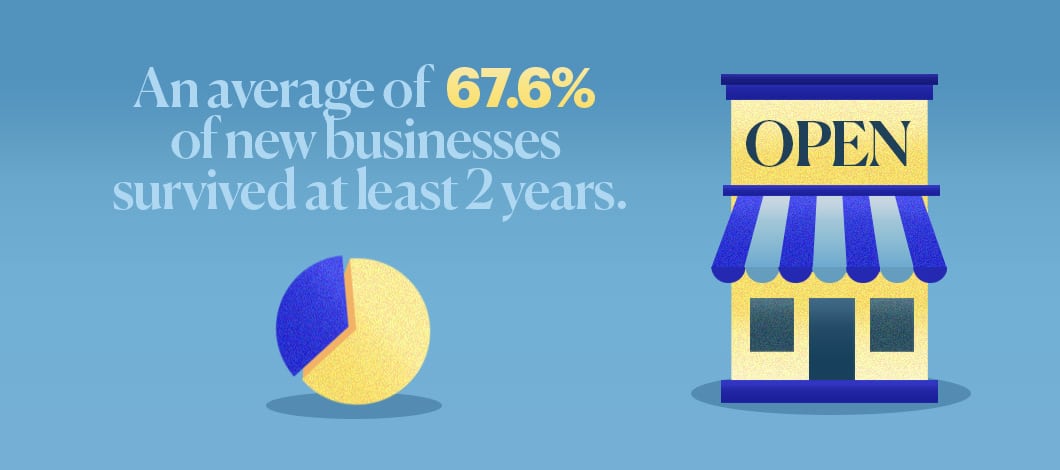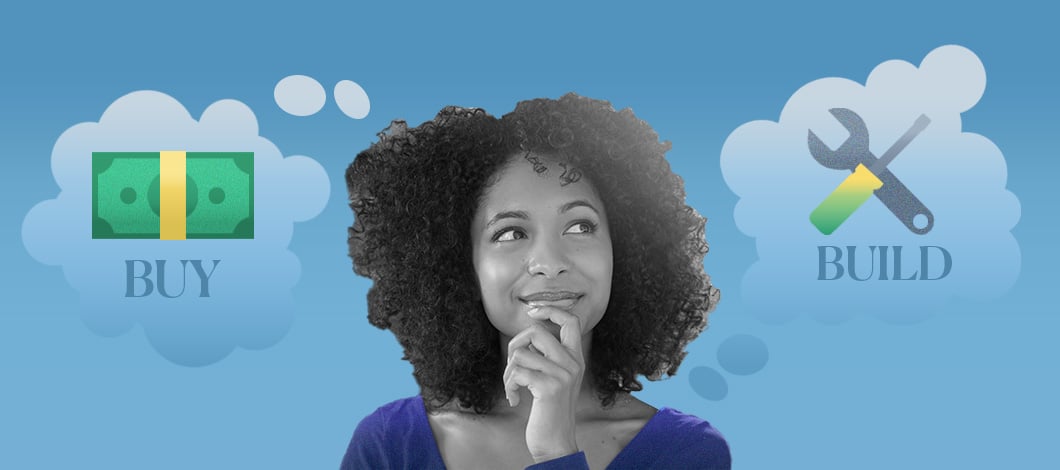Starting a business vs. buying one is a fundamental strategic decision.
Let’s look at the pros and cons of each option. We’ll start by looking at what’s involved in starting a business compared to buying an existing one. Then we’ll compare the benefits and disadvantages of each approach. Finally, we’ll discuss what criteria to consider when deciding which option is best for you.
Starting a Business vs. Buying an Established Business: What’s the Difference?
To appreciate the difference between starting up a new business and purchasing a small business that already exists, let’s start by considering what’s involved in starting a company from scratch.
Starting up a new business requires you to complete a number of essential tasks. Depending on your business model, these may include:
- Creating a business plan
- Incorporating your business
- Securing small business financing resources
- Renting or buying commercial real estate and equipment
- Hiring employees
- Setting up your infrastructure
- Establishing standard operating procedures
- Implementing a marketing plan
- Building a customer base
- Stabilizing positive cash flow
Completing these steps can take many months or even several years. In the meantime, you face a high risk of going out of business before you get off the ground. An average of 67.6% of new businesses survived at least 2 years, according to data from the U.S. Department of Labor, the Census Bureau and the Small Business Administration.

An Alternative to Starting Up a New Company: Buying a Business
An alternative to starting up from scratch is buying an existing business. There are a few variations on this strategy. When an established business wants to expand its operations to a larger scale or enter an existing market niche, it may acquire an existing company. With this method, called a buy-and-build strategy, you may acquire everything you need to continue running the purchased company, including facilities and employees. The main change is new ownership and management.
Another option is buying a franchise. With this approach, you purchase the right to use an established company’s trademarks, business model and reputation. However, depending on the arrangement, you may acquire an existing infrastructure or you may have to build one in a way similar to how you would start up a new business. In the latter case, the difference from a standard startup would be that you’re building on a proven business model.
Should I Start a Business or Buy One: Pros and Cons
Is it good to buy a business instead of starting from scratch? The answer is: It depends. There are some pros and cons to each method.
Starting Your Own Business: Pros and Cons
Starting your own company offers several advantages, including:
- You have total control over your business model
- You have the freedom to be innovative in entering new markets or introducing new methods and products
- Financing a new business can be less expensive than purchasing an existing one
- You can build a fresh brand image without any baggage associated with an existing company’s reputation
On the other hand, starting from scratch has some potential drawbacks, including:
- If your business model hasn’t been tested, it may not work
- You likely will have to wear many hats to handle all the tasks involved in starting a new company
- You may have trouble financing a new company without an established revenue and credit history
- Establishing profitable cash flow may take years
- You might struggle to build a customer base
In short, starting a new company gives you a great deal of freedom and it can be less expensive than an acquisition, but it also takes a lot of work, can be challenging to finance and carries a high risk of failure.
Benefits of Buying an Existing Business
The potential advantages of buying a business can include:
- Taking over a profitable business model, which reduces the risk of failure
- Increasing your likelihood of finding financing by lenders who favor established businesses
- Inheriting existing procedures which you don’t have to invent from scratch
- Acquiring an existing staff
- Building on an existing brand’s reputation
- Tapping into an existing customer base
- In the case of a franchise, combining the benefits of an existing business model and brand reputation with the autonomy of running your own enterprise
On the other hand, these advantages come with some tradeoffs:
- Buying an existing business can be expensive
- If you don’t have experience running a business, you may not replicate the success of your acquisition’s previous owners or the franchise model you’re adopting
- If the business has existing employees, some of them may not handle the transition well and you may have to make replacements
- Should the business you’re buying have a negative brand reputation, you’ll inherit that baggage
- If you’re buying the rights to a franchise, your contract may limit your freedom to run your operation the way you want
To sum up, buying an existing company can be a shortcut to establishing a profitable business model, but it can be costly, and you can run into obstacles managing your new company, particularly if you lack experience running a business or franchise.

Should I Buy a Business or Start One: Making Your Decision
So how do you decide whether starting a new company or buying an existing one is the best option for you?
Here are some key criteria to consider:
- Do I want to follow an established business model or am I trying to break new ground?
- If I’m considering a franchise, would I be content operating within the restrictions of my contract?
- Do I have enough financing to buy an existing company or franchise?
- How long can I afford to run my company before becoming profitable?
- Do I have enough business knowledge and management experience to take over an existing company or run a franchise?
- How much responsibility for running my operations do I want to take on personally?
- Do I want to take over an existing staff?
- Will I be acquiring a positive brand reputation?
- Will I be taking on an existing customer base?
Use these questions to help you decide whether starting up a new company or buying an existing enterprise or franchise is the right choice for you.










